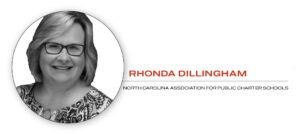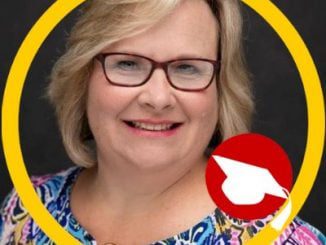 The elections are over, new policymakers have been sworn in, schools are back in full swing, and the commitment to resolve our former ills and to do new and better things is, for a short time, all around us. There’s no better time than the start of this new year to leave tired myths about public charters schools in the past and start a fresh conversation about what’s in the best interest of the more than 1.5 million students in schools across North Carolina.
The elections are over, new policymakers have been sworn in, schools are back in full swing, and the commitment to resolve our former ills and to do new and better things is, for a short time, all around us. There’s no better time than the start of this new year to leave tired myths about public charters schools in the past and start a fresh conversation about what’s in the best interest of the more than 1.5 million students in schools across North Carolina.
In nearly every part of North Carolina, there are critics of public charter schools who seek to shut them down, even while there are waiting lists full of families in those same communities who want the option of a public charter school for their children. There’s something wrong with that picture, and the conflict is rooted in myths. Let’s debunk three of those most pervasive myths as discussed in a recent NCAPCS event with Reason Foundation’s Corey DeAngelis:
“Public charter schools steal funding from district-run schools in North Carolina.” First, public charter schools are public schools exactly like district-run schools. More importantly, funds allocated to education should go to students to fund their education in the school that works best for them. No public school — charter or district-run — has an automatic right to North Carolinians’ hard-earned tax dollars. As Corey DeAngelis says, “Allowing families to choose their grocery store doesn’t ‘steal’ funding from Safeway. Allowing families to choose their school doesn’t ‘steal’ funding from district schools. Education funding is supposed to be meant for educating children — not for propping up a particular institution.”
When district-run schools perform poorly, the remedy is to pour more of your taxes into that school, taking away funds that your children could use to find a public charter school that provides a better path for success.
“Public Charter schools are too restrictive on the students they admit.” In North Carolina’s 201 public charter schools, they are open to all of North Carolina’s students and don’t confine students to the community they live in. North Carolina’s public charter schools provide a free option to many families whose only other option is the closest district-run school to where they live. District-run public schools, on the other hand, operate as a result of zip code.
“Public charter schools lack transparency and accountability.” This myth is the most baseless of them all, because North Carolina’s public charter schools go through a rigorous application process before they can even open their doors. Once they’re open, these charter schools undergo an annual review of their school’s performance — and if they don’t measure up, they must close.
When district-run schools perform poorly, the remedy is to pour more of your taxes into that school, taking away funds that your children could use to find a public charter school that provides a better path for success. As Corey DeAngelis puts it: “Charter schools that underperform shut down. The reality is that public charter schools are directly accountable to families.”
Dispelling these and other myths is only half of our challenge. We must also engage our lawmakers to prioritize a student-focused approach to funding and regulation of all of North Carolina’s public schools. Here are six specific policy actions that the North Carolina General Assembly could take to support students’ success:
1. Allow charter schools to continue to offer virtual instruction.
2. Increase parity of charter schools regarding funding opportunities, including COVID-19 funding.
3. Restrict districts’ request for sensitive student information, and impose a penalty to districts for late payment of local funds.
4. Allow charter schools to directly bill Medicaid for reimbursement of eligible expenses.
5. Allow counties the option of providing capital funding to charter schools.
6. Clarify statute to guarantee charter schools’ eligibility for teacher residency licensure
Whether we are dispelling myths or challenging our lawmakers to adopt a student-focused approach to education in North Carolina and across this country, our enduring commitment remains the same: to make sure our families and children have the option of the best possible environment to be prepared for their future. That commitment won’t change based on who is in office, the myths that run rampant or the obstacles that we must face.
Let’s work together to prioritize the needs of students over the needs of a system.
Rhonda Dillingham is a former high school English teacher, charter school leader and is now the executive director of the North Carolina Association for Public Charter Schools.


